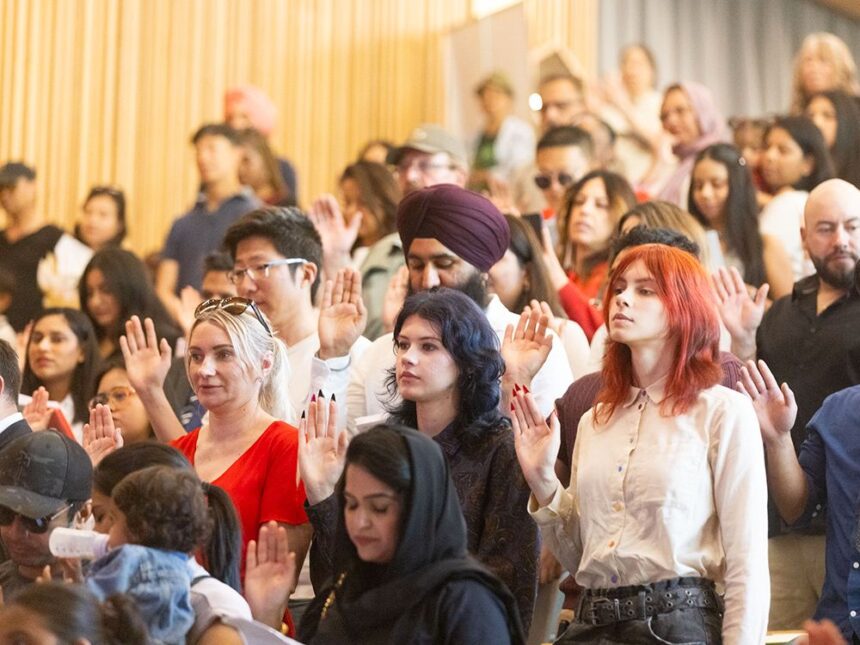Despite Canada’s reputation as a welcoming haven for newcomers, a striking disconnect has emerged between the federal government’s ambitious immigration targets and public sentiment. A recent comprehensive poll reveals that nearly two-thirds of Canadians believe the country is accepting too many immigrants, marking a significant shift in national attitudes during a period of unprecedented population growth.
The nationwide survey, conducted by Leger for the Association for Canadian Studies, found that 64% of respondents consider current immigration levels excessive. This represents a substantial increase from similar polling in 2022, when 49% expressed such concerns. The findings come as Canada experienced its fastest population growth in decades, adding over one million residents in 2022-2023 primarily through immigration channels.
“What we’re seeing is a genuine public concern about infrastructure capacity rather than cultural resistance,” explains Dr. Melissa Chen, immigration policy analyst at the University of Toronto. “Canadians are questioning whether our housing market, healthcare system, and urban planning can accommodate such rapid growth in such a compressed timeframe.”
The polling data reveals nuanced perspectives across demographic groups. Quebec residents expressed the highest level of concern, with 71% saying immigration numbers are too high. Notably, even among recent immigrants themselves, 43% believe Canada is accepting too many newcomers, suggesting concerns about integration capacity transcend cultural backgrounds.
Trust issues also surfaced prominently in the research. Nearly half of respondents (47%) agreed with the statement that “immigrants take jobs away from Canadians,” while 38% expressed suspicion that “most immigrants who come to Canada want to maintain the culture and values of their home country rather than adopt Canadian culture and values.”
The federal government has maintained ambitious immigration targets, planning to welcome 500,000 permanent residents annually by 2025 despite growing public unease. Immigration Minister Marc Miller has acknowledged the challenges but defended the policy, noting that Canada’s economic future depends on population growth.
Housing affordability has become inextricably linked to the immigration debate. With average home prices in major urban centers remaining out of reach for many Canadians and rental markets experiencing double-digit inflation, population growth has become a flashpoint in political discussions.
“We’re witnessing a fundamental tension between economic imperatives and social infrastructure,” says Dr. Jordan Williams, economist at the Canadian Centre for Policy Alternatives. “Canada needs immigration to support its aging population and labor market, but hasn’t invested adequately in housing, healthcare and transportation to support this growth. The poll results reflect this growing strain.”
The findings present a complex challenge for policymakers who must balance economic needs with social cohesion. While Canada continues to rank among the world’s most immigrant-friendly nations in international comparisons, the shifting public sentiment suggests a potential inflection point in the national conversation about immigration.
As debates intensify around sustainable growth targets, the fundamental question remains: can Canada develop the necessary infrastructure and integration programs to match its immigration ambitions, or will mounting public concerns force a recalibration of the national approach to population growth?























